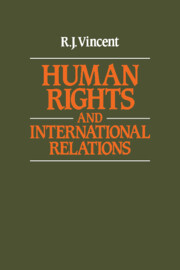4 - Human rights in East—West relations
Published online by Cambridge University Press: 11 November 2009
Summary
The history of East—West relations in the modern sense of that expression, as the contact between socialist countries and western liberal democracies, is in an important sense the history of a dispute about human rights. In doctrine, equality is opposed to liberty, group rights to those of individuals, economic and social rights to civil and political rights. In practice, the East claims superiority in the actual provision of such rights as that to work, and to an adequate standard of living for all, while the West claims to do better on individual freedom, civil liberties, freedom of information and the other values associated with an ‘open society’. The debate continues, at the level of both theory and practice, and it may be argued that it is the different priorities of East and West in the matter of human rights, and therefore their different modes of organizing society to meet them, that provide the reason for the dispute between them.
The dispute, in our modern sense, begins with the Bolshevik Revolution. It is true that some roots of contemporary Soviet human rights doctrine can be traced to the communalism of Russian village society necessary to individual survival. It is also true that the Decree on Peace of the revolutionaries in power in November 1917 recalled the attachment of the French Revolution to the principle of national self-determination.
- Type
- Chapter
- Information
- Human Rights and International Relations , pp. 61 - 75Publisher: Cambridge University PressPrint publication year: 1987



